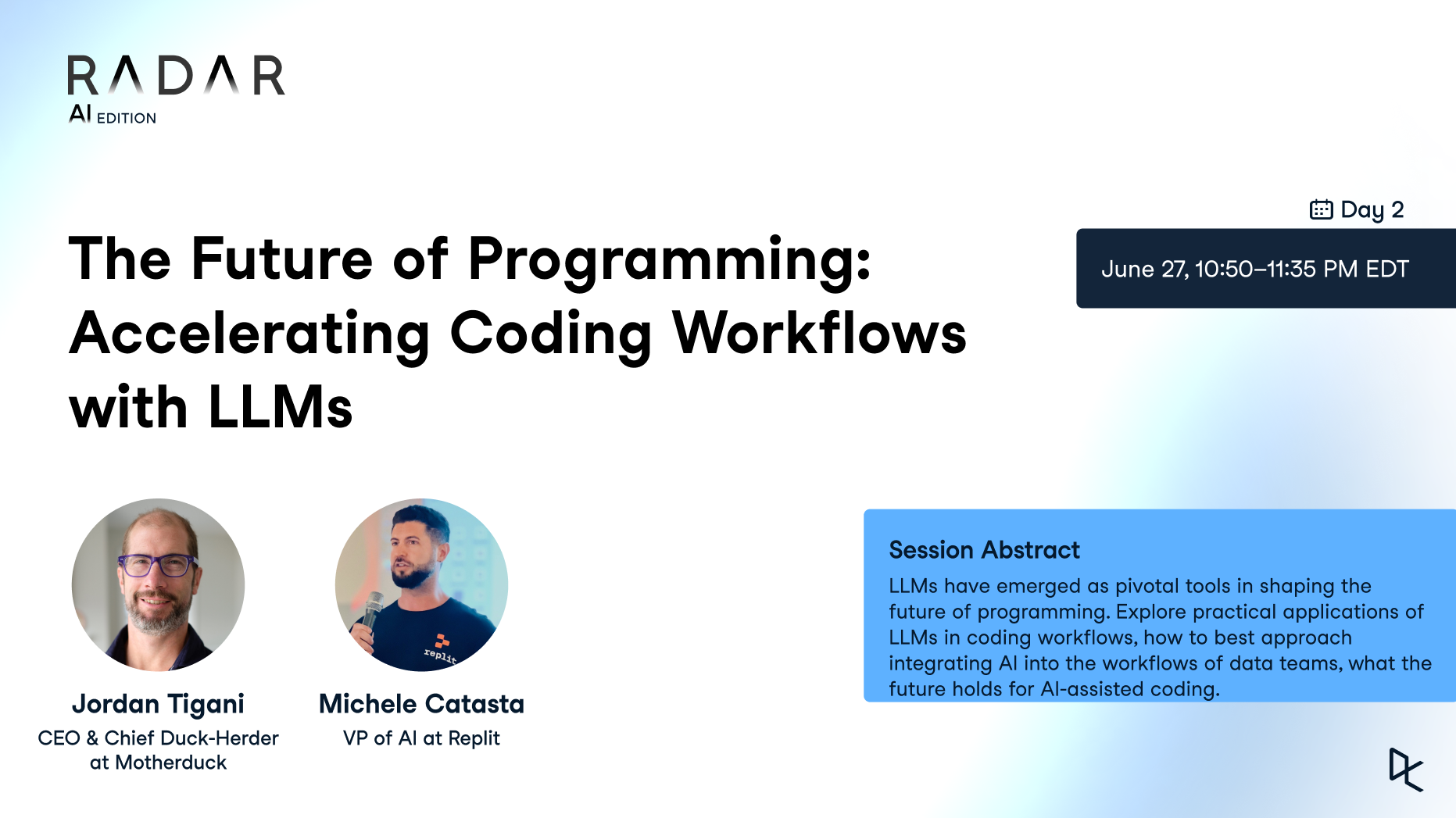Saltar al contenido principalMás información





Altavoces
¿Entrenar a 2 o más personas?
Obtenga acceso de su equipo a la biblioteca completa de DataCamp, con informes centralizados, tareas, proyectos y másRelacionado
webinar
How To 10x Your Data Team's Productivity With LLM-Assisted Coding
Gunther, the CEO at Waii.ai, explains what technology, talent, and processes you need to reap the benefits of LLL-assisted coding to increase your data teams' productivity dramatically.webinar
Unleashing the Synergy of LLMs and Knowledge Graphs
This webinar illuminates how LLM applications can interact intelligently with structured knowledge for semantic understanding and reasoning.webinar
Best Practices for Putting LLMs into Production
The webinar aims to provide a comprehensive overview of the challenges and best practices associated with deploying Large Language Models into production environments, with a particular focus on leveraging GPU resources efficiently.webinar
Understanding LLM Inference: How AI Generates Words
In this session, you'll learn how large language models generate words. Our two experts from NVIDIA will present the core concepts of how LLMs work, then you'll see how large scale LLMs are developed.webinar
Supercharging your Data Workflow with AI in DataCamp Workspace
Take a deeper look at how AI is becoming increasingly embedded in DataCamp Workspace, DataCamp’s modern data science notebook.webinar
Expert Sessions: How to Break into AI in 2024
In this webinar, Sadie St. Lawrence, Chief AI Officer at SSL Innovations and Founder of Women in Data, will provide an in-depth exploration of best practices for breaking into AI in 2024.Join 5000+ companies and 80% of the Fortune 1000 who use DataCamp to upskill their teams.
Loved by thousands of companies


